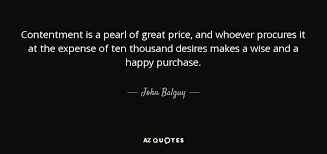“I just want to be happy.”
How many times have you said this to yourself? How often have you found yourself feeling dissatisfied, wondering what you can do to turn things around?
For a few moments, close your eyes, and observe your thoughts.
You will realize that most of our thoughts are related to ‘wanting’ something – achieving certain outcomes, or about something you need to have more of or do more of etc. We have approximately 60,000 thoughts a day…if even a quarter of these are related to ‘wanting’ something, on average, we would have 10 ‘want’ related thoughts per minute!! With this rush of thoughts about wanting more or not having enough, how can we be happy?
You may wonder, what’s the point I am trying to make? Is this YET ANOTHER article about “how to be happy”.
I’m writing this piece to share with you my rather simple (and perhaps obvious), yet most powerful learning in the last few months of making a career transition – practicing contentment.
A few months ago, as I moved out of a 24 by 7, always on the go consulting work environment, to a part-time consulting model, and doing my own work of well-being coaching, I was sure I made the best decision. All my desires about wanting some more time to pursue life outside of work would now be a reality… however, what I didn’t realize is – a career transition does not automatically mean a change in one’s inherent personality. I realized that just when I got what I wanted, I was caught up in wanting more. For example, “I need to figure out my next steps soon”, “I need to be quicker “, “I want x clients in the next 2 months”, “But am I really good enough to do this?” etc. etc.
Fortunately, my Yoga practice taught me one of my most important life lessons – no success, no happiness and no feeling of well-being is possible if I am dissatisfied (not content) with who I am, what I have, and where I am in the present moment!
In fact, it is said in the Bhagwad Gita (an ancient Indian text), ‘Yadrccha-labha-santusto Dvandvatito Vimatsarah’ – whatever is coming to you, you should have some level of contentment, without envying others, or being upset with failure. With this contentment comes gratitude, and with gratitude, comes abundance!
However, being content does not in anyway mean compromising on one’s ambition. Neither does it mean letting go of one’s perseverance and grit to achieve. It only means being satisfied at all times, despite knowing there may be a long way to go.
So, why is practicing contentment so important?
Contentment is the short-cut to resilience: Every organization, CEO, school principal, and parent is talking about cultivating resilience. It’s the latest buzzword, and considered to be critical to success. To be resilient is to successfully cope with, and manage our everyday stressors. However, what has worked for me most (and I say this knowing that I am definitely on the lower end of the resilience scale) is practicing contentment. Knowing that there is a challenge, yet being satisfied with the situation. Knowing things are going to be tough, yet feeling that whatever I need will come to me at the right time. The good news is that contentment isn’t an inherent personality trait; in many ways it is a choice or a habit. Once cultivated, it can help us deal with lower levels of resilience.
Induces relaxation (despite the activity): In the quest of always wanting, or thinking about what’s lacking, we unknowingly upset our entire physiology. Our sympathetic nervous system (the driver of activity) is on over-drive, and the parasympathetic nervous system is slow, which would invariably lead to high stress levels. This stress leads to secretion of cortisol and adrenaline, which then upsets the functioning of our body (e.g.: slower digestion, excess blood sugar levels and so on). This is why they say, that most 21st century health conditions are born in the mind, and manifest in the body! By practicing contentment (i.e. being satisfied) despite having a lot to achieve, we automatically maintain the physiological balance of our body, and thereby our mind (which induces relaxation)
Helps us accept others: In many ways, being content is about accepting oneself or one’s situation. It’s also about knowing how to empathize with our own self when needed. On closely observing my thoughts and feelings, I’ve realized, that when I am always demanding more from myself, I’m also demanding more from those around me. However, when I know I need to get better/do more, but also feel satisfied with the progress I’ve made (and accept any flaws/mistakes), I automatically do the same with others. In other words, practicing self-contentedness helps me to accept, empathize, and exude warmth towards others!! Now, just imagine how important this could be at the workplace – to embrace diversity – not only cultural, but also cognitive diversity, to demonstrate good interpersonal skills, and to maintain/develop harmonious working relationships with others!
Here are some ways to cultivate contentment?
Gratitude, no matter what – When you find yourself feeling a sense of lack, take a moment to count all the good things in your life – A healthy body, your breath, your home, your family and so many other things, that we take for granted ever so often!
Breathe (literally) – 5 minutes of deep breathing, or gratitude meditation/contentment meditation stops the rush of adrenaline and cortisol, and begins the outpour of serotonin, which is pretty much all we need to feel relaxed (without letting go of the drive to achieve)!
Know what success means to you – Often times, we make our definition of success synonymous with what society or our ecosystem may appreciate us for. In our world today with social media, TV, it’s hard not to get caught up in the latest success stories or trends. We are bombarded with stories of what “success” looks like. This stuff isn’t all bad – it’s inspiring on many levels. However, your version of success should be as unique as you are. Achieving someone else’s version of success may make us popular or give us more money etc. However, it probably isn’t going to lead to any contentment.
Tell people (including yourself) that you appreciate them – Most times, our discontentment stems from what we don’t like about someone, or how we wish an individual behaved differently. However, the very same individual, or many other people around us also have a lot of positive qualities. In fact, research suggests …. Consciously looking at the positives, and expressing them will not only make others feel good, but also us feel a sense of balance, optimism, and contentedness.
Practice ‘Karma Yoga’ – This can have two interpretations in today’s day and age. First, have faith that the right process will bring only the best result, while letting go of attachment to final outcomes. Second, help others, without expecting anything in return. Helping others also makes one feel better about oneself, which automatically leads to a sense of self-contentedness.
Know the impermanence of life – Knowing that everything will change, a lot of what we have is perishable, and in the end, what will matter is only how much wisdom we have received, and how much love we have shared, is a quick fix to calm the mind, and become contented. However, balancing this with the everyday activity, without letting go of the drive to succeed is important
With this, I wish you all a happy, contended and productive week!


